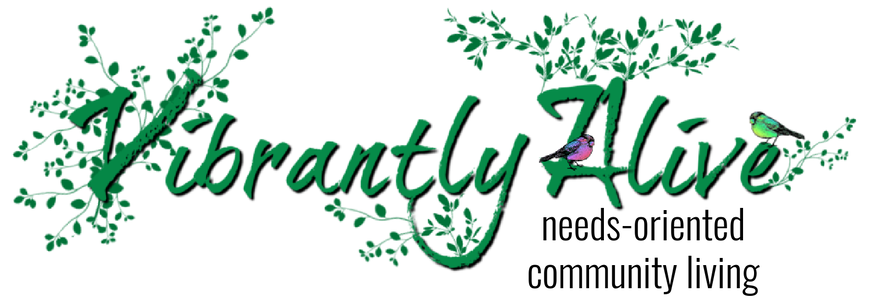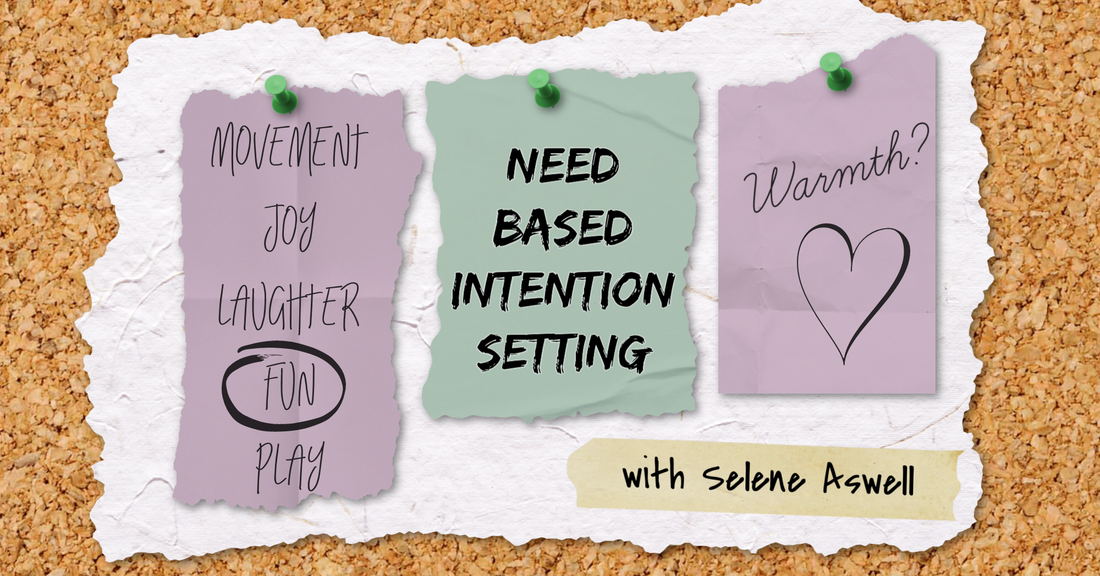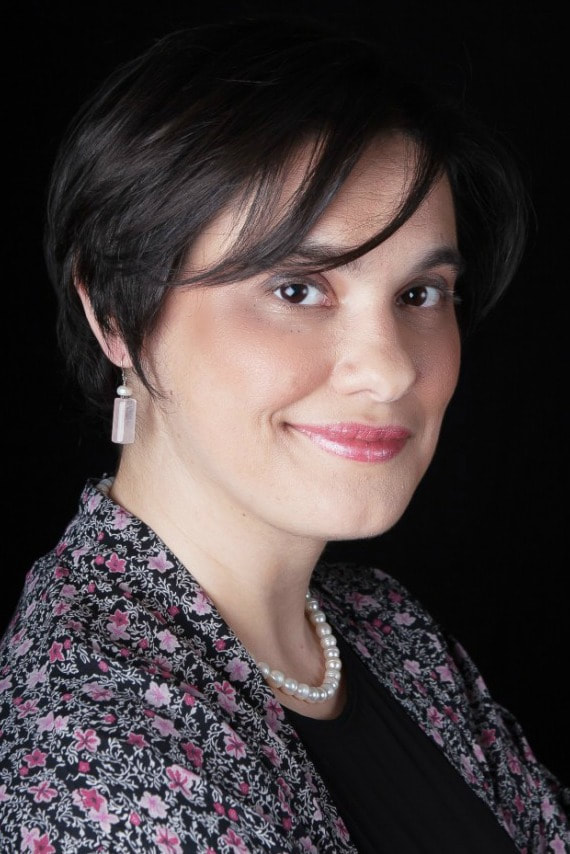|
I spend almost every day doing some form of group collaboration. Working in groups is a vital practice for living in community that I can do now, where I am, even without finding the perfect place to live or the perfect community living situation. I like it because it is a shift away from individualism towards interdependence. I get a lot of opportunities to practice NVC and I noticed my growth rate is exponential compared to when I was working more on my own as a solopreneur. I’d like to explore something that I noticed while working in a group. Have you ever been in a group where it's like you're saying one thing and they’re hearing another thing? Or a question is asked and you think you've already responded to it? There's some confusion and some pressure to speak better, deliver something that's been asked of you. There’s a sense of misalignment, of not quite being on the same page. And if you're not careful, and even if you are careful, it's easy to fall into disconnection and even despair. The thoughts connected with this despair could look something like: Some of the impacts of this pattern that I've observed in myself and in others are rising tension and defensiveness. I have also seen someone else who wasn't speaking but was impacted by what was being said shrinking, visibly shrinking, appearing smaller, retreating into themselves. Other impacts are checking out, this might be called the freeze trauma response. Those are impacts at the individual level.
Impacts on the group level could be loss of trust, loss of willingness to collaborate or even loss of willingness to participate at all. If this happened often enough it could result in exiting the group or even exiting the community as a whole. Ultimately, this could result in giving up on the entire experiment in non-violence or collaborative work or community living entirely and sinking back into patriarchal norms. I had one of these experiences last night. I lay in bed before sleep replaying what happened over and over and over and thinking of how to respond to this or to prevent it from happening. So, I’m writing about this to you today, so we can digest it a bit together. I want to share a little bit about what came to me. “I want you to meet us where we are,” someone said in yesterday's meeting. To give a little context, I’ll summarise by saying that we were receiving requests and commentary on what I might call “Phase D” of the project and I was presenting information about where we are in the project, which could be called “Phase A”. “I want you to meet us where we are” reminds me of what my teacher said about empathy. We were talking about listening with empathy, in this case with an individual as they express what's on their mind. My teacher calls this “entering into the jungle of their heart”. I really like this metaphor because it shows one of the core principles of listening to someone with empathy. To respond to someone empathically, I need willingness to pause expressing my world and enter into their world. We were practicing this with a specific individual. I have an idea that there might be a bit more flow in listening with empathy to someone when they're right in front of you, when you're seeing the expressions of pain or joy. Some part of us moves into their world a little bit: we enter a space of togetherness. I'm witnessing what's going on for them, what's important to them, what they're expressing. This empathic listening is part of being human. I believe it is a universal human need to both give and receive this empathic presence, this empathic receiving. It is a skill we can improve, that we can grow a practice of, that we can apply as an orientation to how we want to respond to people choicefully. Empathic receiving is a natural tendency that we see in babies responding to facial expressions on the adults around them. Due to living under authoritarian social structures, at some point that natural flow is lost. So we practice it; we reclaim it. Because that natural flow is lost, even when I may have a heartfelt desire to receive someone with empathy, to enter into their world, and to be present for what is real for them (even if I don't believe it myself or if I don't resonate with it) I might not still actually manage to do it. I might still respond with judgement or defensiveness or distance. Or I might respond with what’s alive in me before they're ready to hear it, before they feel fully heard. And this happens, even with practice, even with a commitment to receiving others with empathy. It happens. I may be full of regret, there may be a cost, cost to the relationship, to the shared work, to the community. When we scale up from one on one interactions to group interactions, there's a lot more complexity to receive. Every person in that group wants to be received empathically. Every person in the group wants to be met where they are. Again because to be received with empathy is a human need that we all have. This is not always achievable due to the fluctuation in individual capacity and group capacity. Influences on capacity might be time, might be orientation towards achieving a specific purpose, might be unexpressed conflict in the room, it could just be something as simple as tiredness, or habits, or lack of facilitation. I learned to carry empathic receiving into a group when I was bringing nvc into a school setting to work with teens and their teachers. I stepped into their world, reflected their language, while simultaneously welcoming them into my world. I had to stay on my toes, keeping a foot in both worlds, grounded in myself and what was important to me, bringing it with me while empathically entering into their world, respectfully seeing them as whole, that their worldview and desires matter, landing into trust in our shared humanness. And, this is in addition to my relationship with the teachers and staff. All of what I just described I also did with the staff when I met with them. To add more complexity, I became a bridge between the teens and the staff, supporting them in hearing each other. I basically grew a third foot, one foot in my world and what change I hoped to inspire in the school, one foot in the staff's world, hearing and caring about the things that were important to them (ie the student’s physical safety and getting more opportunities in life) and one foot with the youth, responding to what was important to them (their mattering). And somehow, to try to support both the staff and the youth in practicing this dual listening (one foot in myself and one foot in the other’s world). And to do it in a group setting. Once a week we sat in circle together, sharing and listening and reflecting. I want to come back to the original context, the meeting that I had yesterday. My dream would be at even a brief one hour meeting that participants, organisers, facilitators, guests, and team members would come into the meeting with this orientation of emphatically receiving the others with one foot in my own world. I want to see more skillfulness in myself and in those that I work with. I want to see more capacity to hear what people are saying, to pause my own expression, to pause my own requests and to be more likely to enter into the world of the people that I'm working with. Depending on the number of meetings that you have that might seem like a tall order, and I dare to dream of it. If we lived in a world with less patriarchal wounding this would maybe be a more doable request. If we worked or lived in a community of people applying this practice it may be a more doable request. So let's look at some applicable strategies that we might bring into meetings or collaborative group work that may support us in walking towards this dream. Before the meeting or collaboration:
Selene is sharing her annual practice of setting intentions for the coming year based on the needs she wants to nourish. She'll walk you through the process she uses to move from needs to strategies and goal setting. What to expect: Listen to the recording of the live event where we worked with a series of questions in empathic listening pairs, so come prepared to share and explore and support each other. Bring a needs list or set of cards. You can explore these questions with an friend or in a journal. There are no prerequisites for engaging with this process AND if you have done some basic NVC it will be helpful. This process is based on NVC. It is one way to integrate needs consciousness, to take your undrstanding of needs another step deeper. I also offer this course as an in-person or zoom workshop that can be requested. Email me for details. Contribution to Selene's Financial Needs:
My preference is to move towards gift economy. For me, this is an application of needs consciousness that is at the core of this work. I'm happy to receive whatever you feel comfortable to give while also asking that you consider my financial needs. The idea is that you choose a number that balances both our needs. I have publicly shared my financial needs so that you can make a grounded decision. My preference would be that everyone connected with themselves to find an amount that balances both our needs, and I'm aware that may take time and energy that not everyone has. If you prefer not to choose a number yourself, here is a suggestion: 5€ - 20€ Learn more about this here: http://www.vibrantlyalive.me/enter-into-gift-economy-with-me.html I want to share a bit about empathy, because it's been on my mind lately. I've been reflecting alot on various applications of empathy as well as noticing the impact of receiving empathy (or not) and giving empathy (or not). I'm finding it to be a powerful tool for transforming pain, for creating change in unwanted cycles, and for know "what to do" in difficult situations. What is empathy?I really enjoy this popular video from Brene Brown, explaining her take on it. What is empathy? "Empathy is a respectful understanding of what others are experiencing." ~ Marshall Rosenberg Empathy is simply being with someone (or ourselves). It is our willingness to offer our presence, in nonjudgement (wthout evaulating good or bad, right or wrong) to someone in pain (or in celebration). It's when we focus on what is happening inside someone else (or ourselves), with an openness, a curiousity. Through an NVC lense, empathy is a need. Humans, universally, have a need for empathy (to give it and to receive it, I think). How do I know it's a need (for me)? Simply, I feel better when someone responds to me with empathy and I feel worse (often irritated) when someone doesn't respond to me with empathy (when I want it!) I like to understand the importance of things by connecting it's function with universal human needs. For me, so many needs are connected to receiving empathy: the need for human warmth and presence. the need to receive attention. to receive care. to trust that I matter, that my feelings are welcome, that what is important to me is received with openness, that my whole self is accepted (even the uncomfortable parts), to be seen and heard, for my truth to be understood. . . For me all those needs add up to love. Empathy is an expression of love. To give empathy is an act of love. To receive empathy helps me to feel loved. Empathy as a PracticeLately, as I learn and apply NVC in my daily life, "empathy" has been a primary focus of my practice. Responding to others (and myself) with empathy is unfortunately not always my default reaction. As Brene Brown has said, empathy needs to be practiced. The thing is, although I firmly believe this kind of welcoming, nonjudgemental response is an expression of our innate humanness (that's why it's a "need"), we have been living under a culture of patriachy, which emphasizes moralistic judgement (resulting in structures of domination and power over) for up to 10,000 years (possibly 300+ generations of humans). So, although empathy is innate to us (as seen in children responding to pain in other children), we as adults, need to "unlearn" our judgemental programing and practice empathy as a skill. Not only do we need to practice as a skill (like we might practice penmenship or how to sharpen a kitchen knife), we also need to apply it as a daily practice (like yoga or meditation, even if we learn how to sharpen knives, if we don't do it regularly, they will get dull, they wont chop as well as we'd like, and we run the risk of injuring ourselves in the kitchen). How to Cultivate a Daily Practice of Empathy
The Impact of EmpathyI mentioned at the start of this post that I've been reflecting on the impact of empathy when it's given/received or not. I've been noticing moments where empathy was not given (or it was given and not recieved) that resulted in pain, emptional distance, conflict, missed opportunities for connection, unresolved requests for support.... And, when I've noticed empathy was successfully employed, I've been consistantly impressed by the ease of connection between human hearts that I've noticed. I've been deeply in awe of the physical shift I see on people's faces and body langauge when they feel heard, welcomed as they are. The best word I have to describe what happens when people are met with sufficient empathy is "healing". Transforming Pain with Empathy SessionsAs I began to connect with the "healing" impact of receiving deep empathy, I became inspired and excited to offer this as a service. I have found empathy sessions to be uniquely empowering even as they are healing. As Marshall Rosenberg, the founder of NVC, said, "People heal from their pain when they have an authentic connection with another human being." I offer sessions both in person in Dublin and online via Zoom. Learn more here. Some Times I wish Empathy Were USedFinally, I've listed some possible applications of empathy or moments when empathy could be useful (just SOME). Writing this list was really inspiring for me, I dream a world where empathy was this ubiquitous.
I’m writing this from my room in Bled, Slovenia, sitting at a small table with a red checkered cloth, next to the window (and the radiator!). The view out the window is the reason I’m writing today. Let me see if I can describe it to you, I tried to take a picture but my camera is criminally incapable of capturing this moment. The sun is shining over a hilly ridge, to my right. To my left, the Alps, with their snowy pointy heads. Between these two is a small valley, where my room is situated. The view is off of my balcony. There are a few houses around, but mostly, I see pasture land, directly in front of me is the tiniest barn you’ve ever seen, I’ve seen spoiled chickens with bigger coops. Who lives in this barn? I imagine it would be the handful of sheep lounging next to it. There is a chicken coop next to the sheep, but I see no chickens out and about. Maybe they, like me, thought it was too cold to go outside.
It was -4C this morning around 9, to drop down to -5C around 10 am, so I did not join my husband on his proposed 2-3 hour walk. He went out on his own, and I stayed in, to take in the view and the incredible feeling of potential and possibilities present here. A red tractor has rolled by me, pulling a fair bit of what looks to me like soil. Behind the sheep lies a smallish pasture, which you could probably walk the width of in a matter of minutes, marked off by a decrepit fence, partially blown over, several feet of which is laying on the ground. Clearly, there is no real need to keep anyone in or out. On the other side of the unnecessary fence is a bit of boggish land, with a small pond and a stream running through it, and on I assume, to eventually join up with the Sava. On the other side of the pond is another fence, this one upright, another greener pasture, another fence, and then horsies wearing blankets (obviously). Beyond the horses, another yummy looking green pasture, then, a treeline and we are at the base of the foot hill I initially mentioned. Just a note that I am using the word pasture loosely here, certainly they are functioning as pasture land, each pasture is probably only half an acre or less, but, the sheep don’t seem to mind. “Content” is the word that comes to mind when I watch them, lazing about their field. Content is certainly how I feel, deep in my body, somewhere around the area of my heart and yet deeper in. I slept, cocooned in silence, the palpable silence of space that is found in the country, where the number of people as far as the eye can see is less than the number of people I typically serve coffee to in a few hours. My body feels the contentment of the moment, the quiet and peace of this place, but my mind, bless her, is anything but content, she has already started racing thinking how could I possibly create a view like this for my daily life… this view being a symbol of my goals and dreams. My mind worries about money, student loans, and global climate change. Beneath this worry is fear… a fear that I will never achieve my goal and instead spend the rest of my life dreaming rather than experiencing the life I want. And beneath this fear, is a deep yearning to be alive… to live a full life, vibrantly experiencing the joy of existing on Earth. So my fear is there to communicate to me how very important it is to my inner self, to be so fully alive. Can I feel fully alive while living in an urban setting that frustrates me more than delights me? Probably. But I don't want to placate my innerself, as if she were a toddler drawing on the wall, saying, look here is some paper you can draw on. That toddler is Van Gogh and that wall is the canvas of our lives. I want to run singing through life, I want to paint the walls of my life with the bright and vibrant strokes of fully experiencing the moments of my life. No, I will not placate my inner longing by saying “oh, but life can be good in the city”. No, I will listen as honestly as I can to this fear and this longing, I will let it motivate me, as hunger motivates us to eat. I will take it seriously, as a life-affirming instruction from my innerself. We yearn for this life of clean air, sparkling moving water, and dirt to get our hands into. And And, as I take this yearning more and more seriously, even as I write this to you, I notice my worries are lessening, and that feeling of contentment is shifting up into my mind. The truth is we don’t know the “how” but as I connect to my longing, the fear is not fear at all anymore, just pure longing. And this longing is the energy of life itself. I want to open my mind to this energy of life itself and see what happens. The next time you notice your mind in anxiety, try to connect to the message the fear is communicating to you. What is it that you are longing for? That longing is a signal from the spark of life within you, telling you what kindling is best suited to feed that flame. |
Selene Aswell
|



